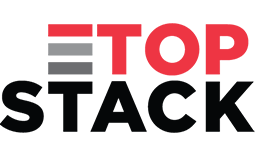The Best Questions to Ask At the End of the Interview

A few great questions to ask at the end of an interview include “Beyond the hard skills required to successfully perform the job, what soft skills would serve the company and position best?” “what have past employees done to succeed in this position?” and more.
Interviews are hard. You meet with strangers for an hour and somehow have to thrill them to the point where they offer you a job. If you’re shy or lack self-confidence, it can make the interview process awkward and uncomfortable. Even if you are the most qualified person for the role, the interview could be a slippery slope that you have a hard time with.
One of the most awkward moments of an interview can come at the end. Is there a way to neatly wrap up the discussion in a polite, professional manner that leaves the hiring managers wanting more? This article will give you some great ideas for wrapping up the conversation.
Best Ways to End an Interview
Finding the right questions to ask your interviewer shows that you have done your research and have skin in the game. This includes the end of the interview process, where the hiring team may tell you that they’ll get back to you. Instead of leaving the ball in their court, why not try one of these questions that will show the interviewers you are very interested in the position—and ready to go to work.
When the interviewers ask you, “Do you have any questions for us?” try one of these questions to leave on a positive note.
- Who is the ideal candidate for this position, and how do I compare?
This is a good way to determine if your skills are even close to what the hiring team is looking for. If you don’t seem like a match, you’ll know it on the spot, so you can move on with your search instead of waiting for the company to get back to you with a “No.” - What soft skills are you looking for in a successful candidate?
Soft skills are the ones you need to get along with the team and fit into the company culture. - What have past employees done to succeed in this position?
If it’s a new role, this question doesn’t fit. But if it isn’t, this is a great question to determine what metrics you’ll be held to and what the company believes is important. It could also lead you to ask what kind of advancement is available to the person in the position. - How has this position evolved?
Again, this is another question that may not apply. It’s important to know if the person in the role before you was fired or let go. This is an excellent question to get a sense of company stability and how the firm has evolved. - What would a typical day look like in this position?
Don’t you want to know what the job really entails? This is a good question to understand workflows, who you report to, and the daily grind.
Ending your interview with these intelligent, respectful, but probing questions, is an important way to leave hiring teams with a positive impression. For more tips and tricks, why not send your resume to the team at Top Stack. We have great jobs and information to share. Contact us today.











